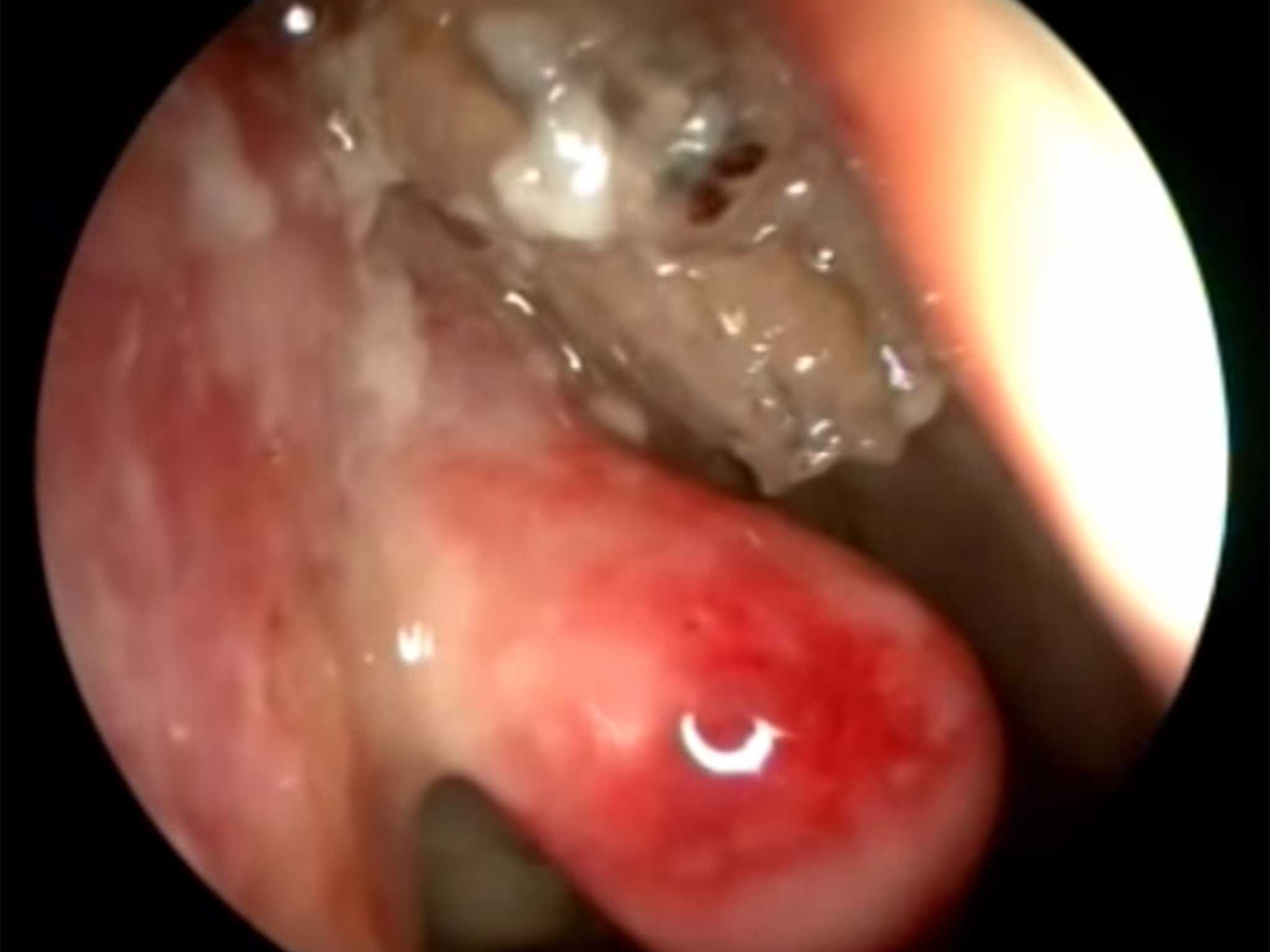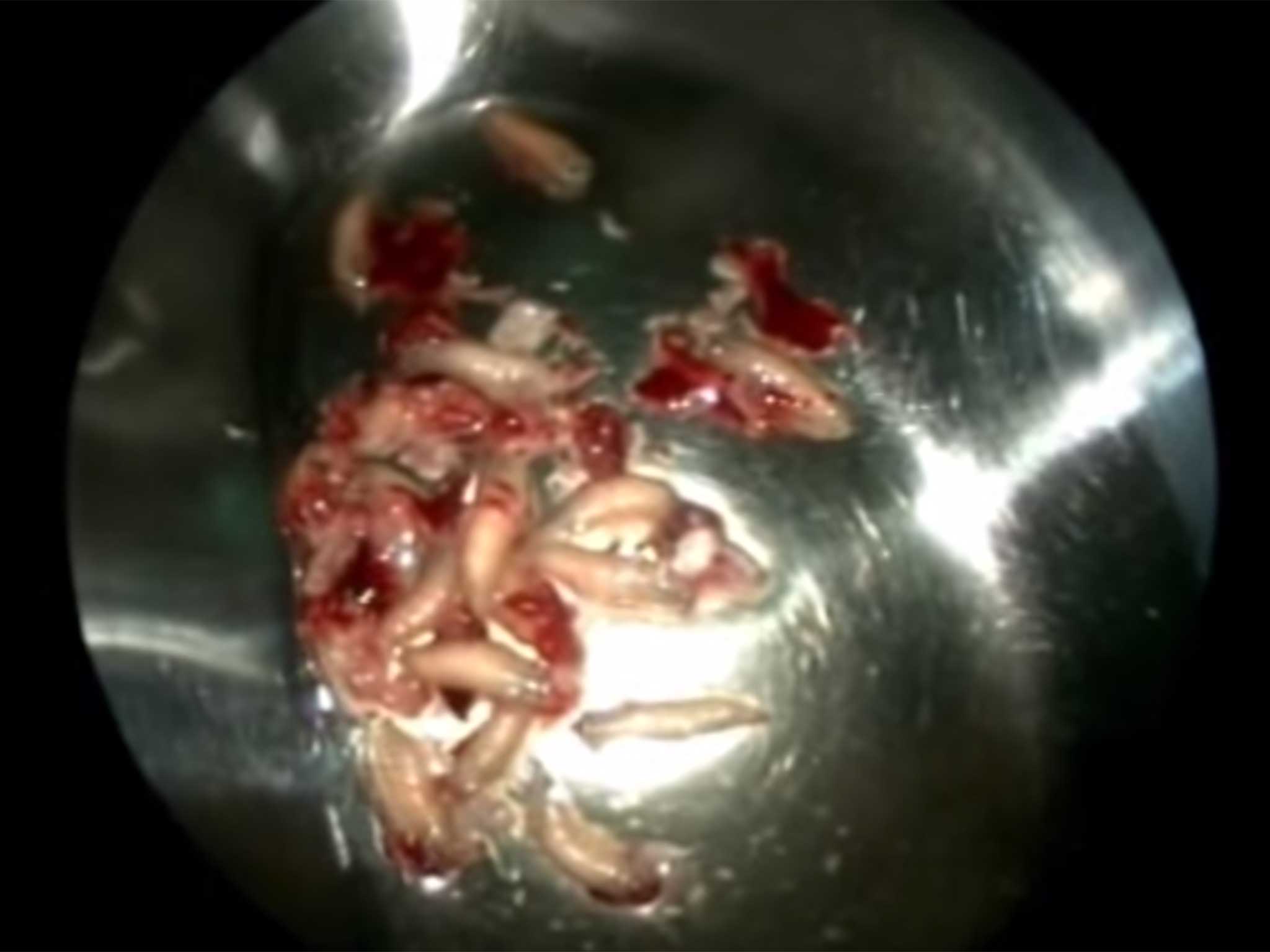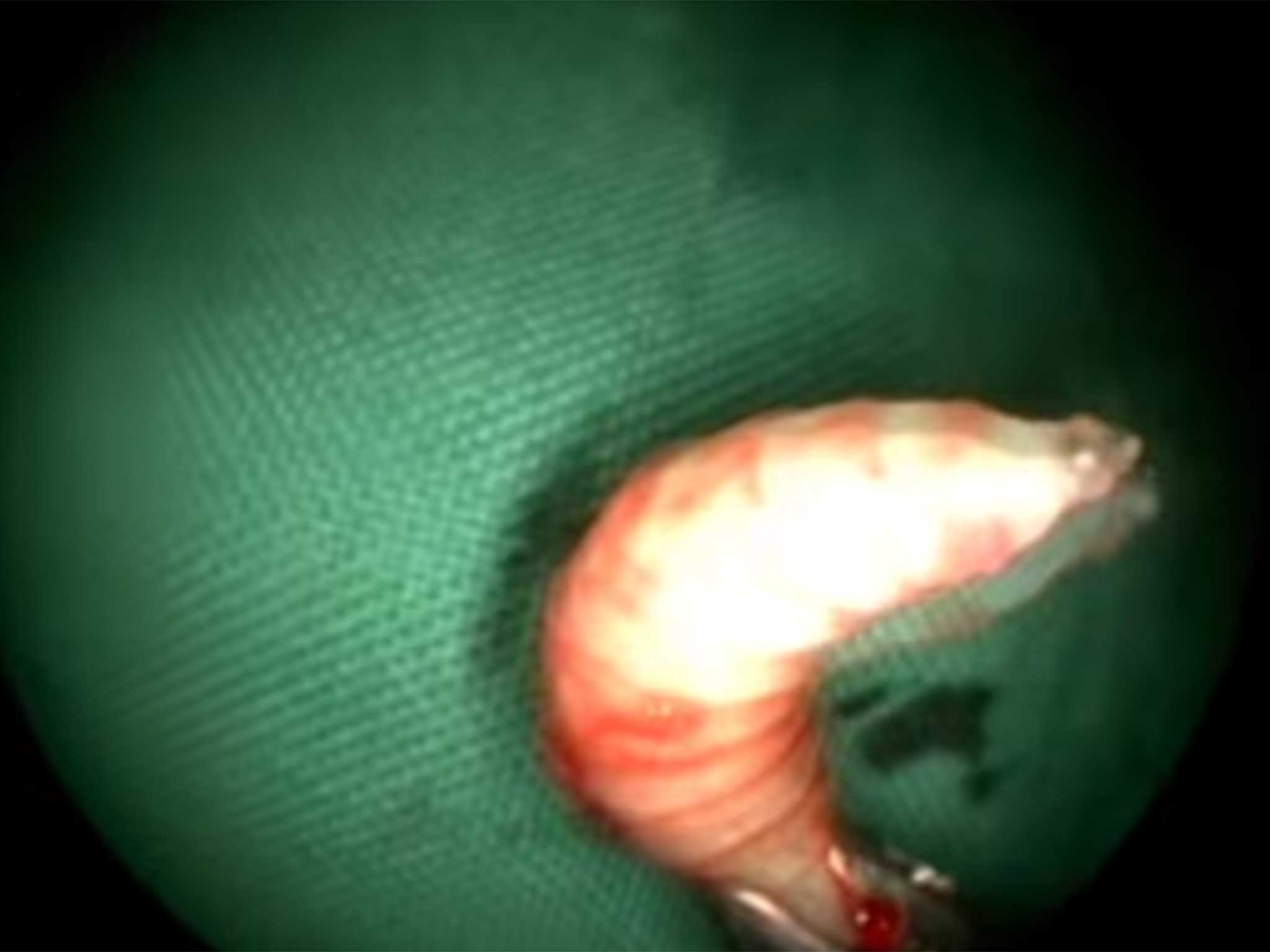Indian surgeon removes 50 flesh-eating maggots burrowing into man's face
Patient is expected to make a full recovery after two-hour surgery

Your support helps us to tell the story
From reproductive rights to climate change to Big Tech, The Independent is on the ground when the story is developing. Whether it's investigating the financials of Elon Musk's pro-Trump PAC or producing our latest documentary, 'The A Word', which shines a light on the American women fighting for reproductive rights, we know how important it is to parse out the facts from the messaging.
At such a critical moment in US history, we need reporters on the ground. Your donation allows us to keep sending journalists to speak to both sides of the story.
The Independent is trusted by Americans across the entire political spectrum. And unlike many other quality news outlets, we choose not to lock Americans out of our reporting and analysis with paywalls. We believe quality journalism should be available to everyone, paid for by those who can afford it.
Your support makes all the difference.An Indian man has had 50 maggots removed from his nose to prevent them eating into his eyes, causing blindness and possible death.
Surgeon Dr Meenesh Juvekar spent two hours surgically removing the maggots, using an endoscope, from deep inside the 55-year-old man’s sinuses.
Nasal myasis - when the nose and sinuses become infested with the larvae of flies - is thought to have happened after a fly laid its eggs in or around the man’s nose and they hatched into maggots.
Each maggot, which feeds off human flesh, was around a centimetre in length and if left untreated could have chewed into and destroyed the bones and soft tissues of the man’s face, nose and eyes.

This grim fate can – unsurprisingly – lead to serious infections, and occasionally meningitis or death.
After successfully completing the surgery Dr Juvekar uploaded his images to YouTube. In the video white maggots can be seen tightly packed into the man’s nasal cavities – and even deep burrowing into the flesh. The insects wriggle in a metal bowl having been removed, before they are disposed of.
The surgeon has only seen six to eight cases of nasal maggots in 15 ears of his Ear, Nose, and Throat practice.
His patient is now expected to make a full recovery.
The condition is common in tropical countries, usually occurring in people with poor hygiene and nutrition or alcoholics.

Victims may not be aware they have maggots in their eyes, instead experiencing irritation, sneezing, tears and headaches. Other signs can include watery blood-stained discharge from the nose, and puffy eyelids.
Surgery is only necessary in the most extreme cases, as usually the maggots are killed using chloroform water and oil, and warm saline water is used to flush out the dead insects.
Join our commenting forum
Join thought-provoking conversations, follow other Independent readers and see their replies
Comments